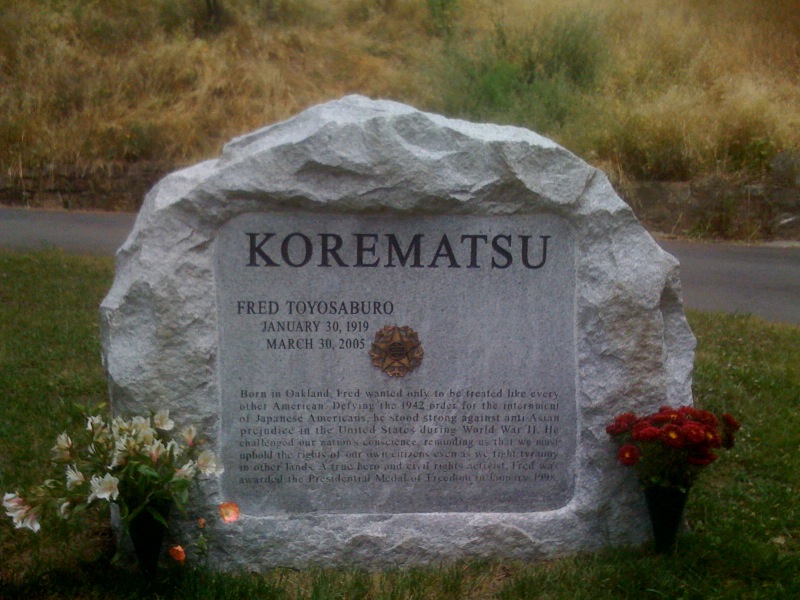 By Scott T. Allison and George R. Goethals
By Scott T. Allison and George R. Goethals
Heroes show leadership by taking steps to save or improve our lives. A hero’s leadership can be direct, as when the leader interacts directly with followers, or it can be indirect, as when the leader’s works and deeds provide an example or model for others. Two of the 20th century’s greatest indirect leaders were Rosa Parks and Fred Korematsu. Parks became a civil rights hero when she refused to vacate her seat on a Montgomery, Alabama bus in 1955. Korematsu’s indirect leadership is not as well known but is no less important.
Korematsu was an ordinary 22 year-old American living in Oakland, California, when Japan attacked Pearl Harbor on December 7, 1941. In the weeks that followed, Americans feared another Japanese attack on the west coast of the United States. Racial discrimination against Japanese-Americans, already a problem before Pearl Harbor, became intensified. Korematsu was fired from his job as a welder in a shipyard, simply because of his ancestry.
Ten weeks after the attack, President Roosevelt issued Executive Order No. 9066, which required all people of Japanese ancestry along the entire Pacific coast, including all of California and most of Oregon and Washington, to leave their homes and report to internment camps. At the time, most Americans supported Roosevelt’s decision. Even the Los Angeles Times defended it: “While it might cause injustice to a few to treat them all as potential enemies,” wrote the editor, “I cannot escape the conclusion… that such treatment… should be accorded to each and all of them while we are at war with their race.”
Most Japanese-Americans complied with Executive Order 9066 to demonstrate their loyalty to America and its laws. But Korematsu recognized the inherent injustice of the decree. “I was just living my life, and that’s what I wanted to do,” he said in a 1987 interview.
recognized the inherent injustice of the decree. “I was just living my life, and that’s what I wanted to do,” he said in a 1987 interview.
Korematsu did not turn himself in to authorities. Consequently, he was arrested, jailed, convicted of a felony, and sent to the Topaz internment camp in Utah.
While imprisoned at the camp, Korematsu appealed his conviction, arguing that his constitutional rights had been violated. The court ruled against him. In 1944 he appealed all the way to the Supreme Court, which upheld his conviction in a 6-3 decision, authored by Justice Hugo Black. The Court ruled that Executive Order 9066, though constitutionally suspect, is justified during times of “emergency and peril”.
After the war, Korematsu waited nearly 40 years to clear his name. In 1982 he obtained suppressed government documents indicating that the forced relocation of Americans to internment camps was motivated by racism, not military necessity. With this evidence, the courts overturned Korematsu’s conviction. In 1998, President Bill Clinton awarded Korematsu the Presidential Medal of Freedom, the nation’s highest civilian honor. At the ceremony Clinton said, “In the long history of our country’s constant search for justice, some names of ordinary citizens stand for millions of souls €” Plessy, Brown, Parks. To that distinguished list today we add the name of Fred Korematsu.”
Heroism can take time. Leaders know when to stay the course, and heroic leaders such as Korematsu stay the course to its triumphant conclusion. “It may take time to prove you’re right,” he said, “but you have to stick to it.” In the face of injustice, he urged people “to protest, but not with violence, and don’t be afraid to speak up. One person can make a difference, even if it takes forty years.”
– – – – – –
One of our readers suggested that we profile Fred Korematsu. We welcome your suggestions as well. Please send your ideas to Scott T. Allison (sallison@richmond.edu) or to George R. Goethals (ggoethal@richmond.edu).